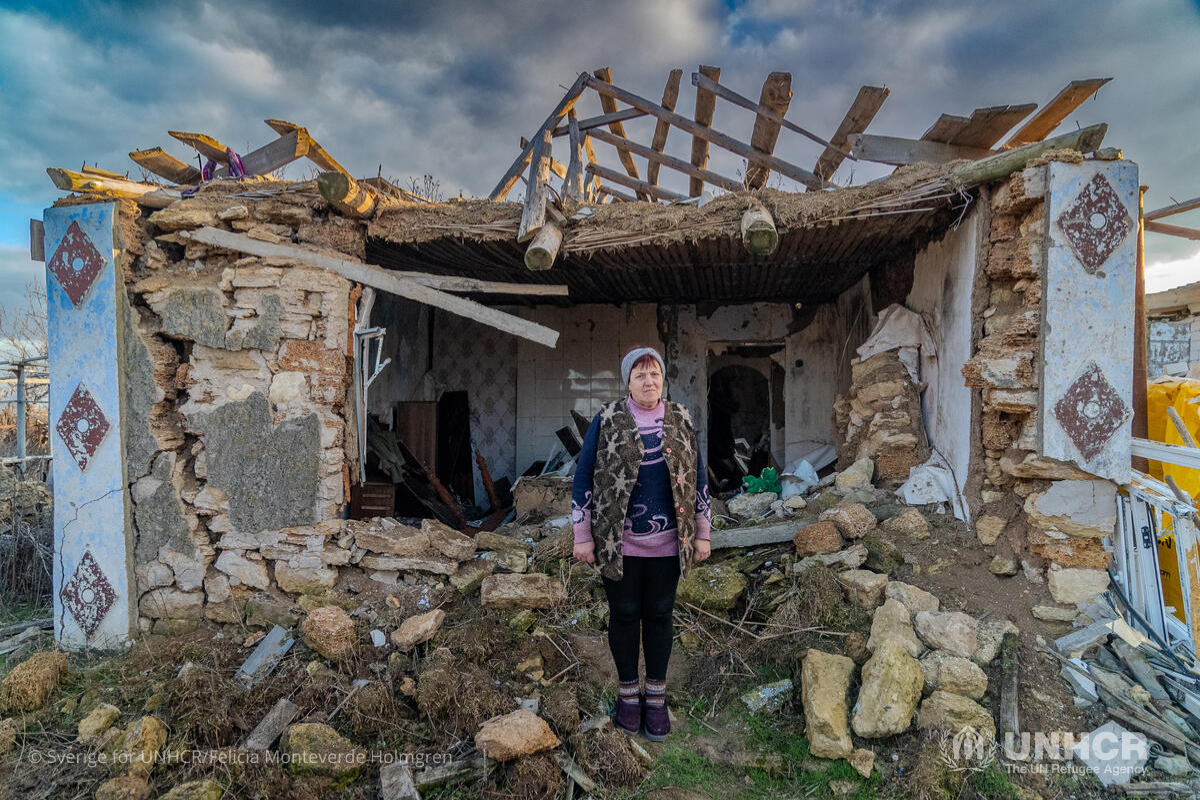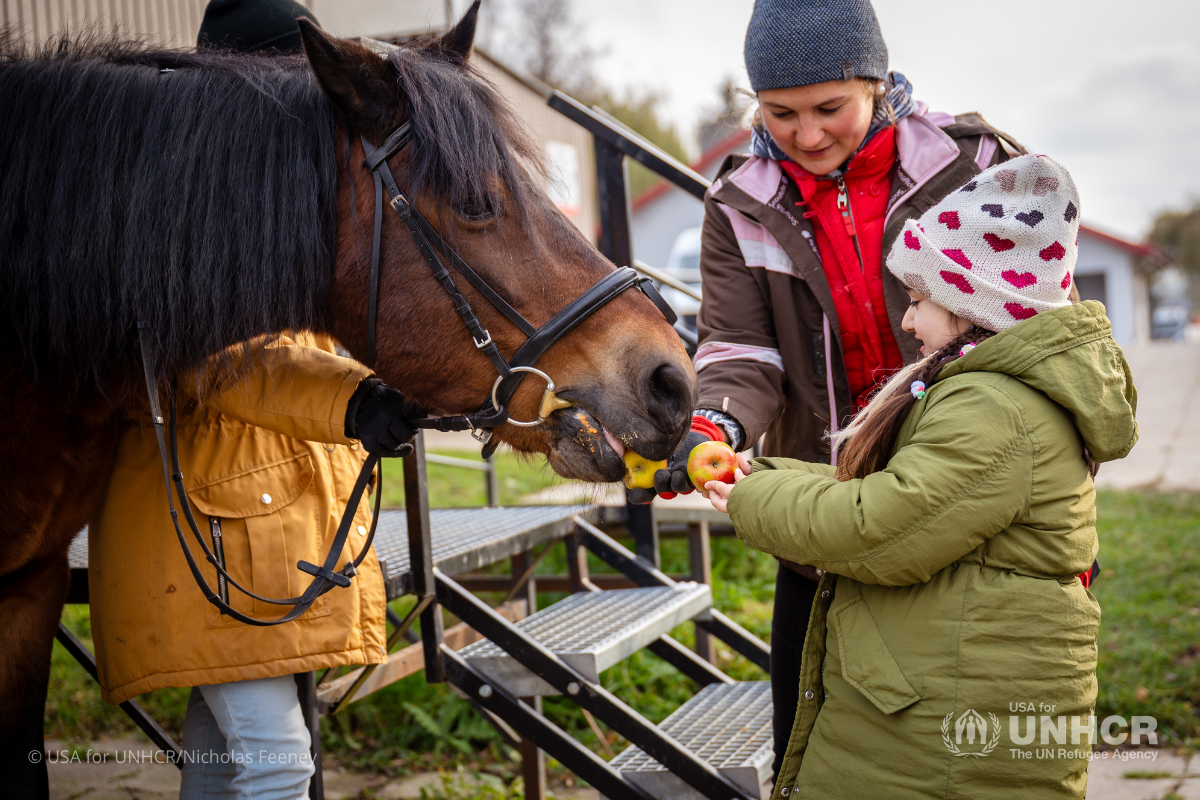A rehabilitation center in Mexico is helping this couple recover and build a future together
There are smiles and a great deal to celebrate today, but Javier and Maria met under very difficult circumstances after each suffering injuries in accidents on their journeys to safety. Javier had one leg amputated from the knee down and Maria became a double amputee.
While recovering from surgery, both Javier and Maria were referred to ABBA, a shelter and rehabilitation center in Guanajuato, Mexico that is accessible for individuals with disabilities and provides psychosocial care and physical therapy to its guests. ABBA also helps coordinate patient care at INGUDIS (The Guanajuato Institute for People with Disabilities) a rehabilitation center that customizes prosthetics for its patients and provides physical therapy for individuals during their journey to recovery.
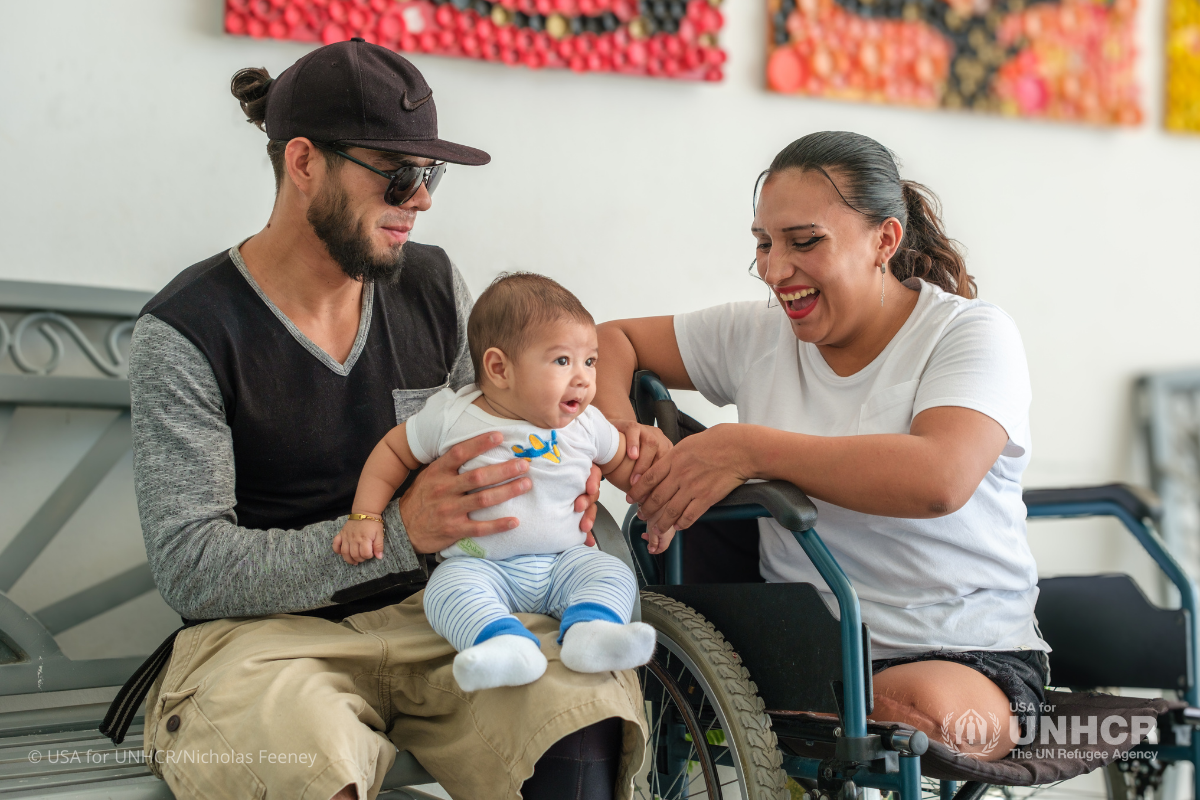
The shelter and rehab center not only provide care to Mexican citizens, but they are instrumental in providing care to refugees and other forcibly displaced people who are living with disabilities. UNHCR, the UN Refugee Agency, works with local authorities throughout Mexico to ensure that the diverse protection needs of refugees and other forcibly displaced people are met — including individuals living with disabilities.
Javier fled Honduras in 2020 after threats from a local gang made him fear for his life. Javier shares that the gang pressured him to hide weapons in his home, and when he refused, they threatened to kill him. There was no choice left — he fled.
Arriving in Mexico, Javier found safety at a shelter in Chiapas, a southern state in Mexico that borders Guatemala. Chiapas is often the first stop in Mexico for people seeking refuge from violence and persecution in El Salvador, Guatemala and Honduras. In 2022, Mexico ranked fourth globally in new asylum cases, after the United States, Germany and Costa Rica, with 118,800 new applications.
At the shelter, Javier also met representatives from UNHCR and shared his story.
“I was an asylum-seeker,” Javier shares, and he was soon granted refugee status in Mexico. He left Chiapas with a plan to head north to Mexico City or Monterrey, Mexico where there are more employment opportunities. But a train accident led to his injury and forced him to change plans.
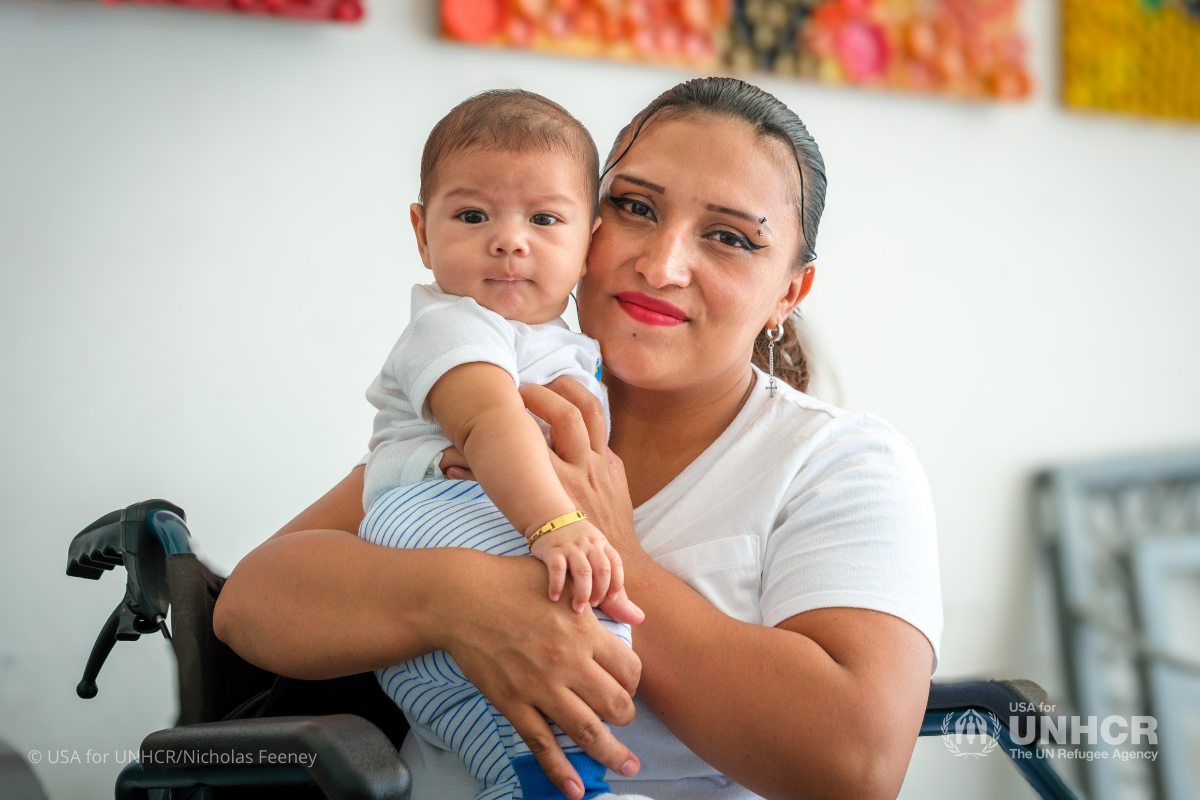
While recovering from the accident, Javier was referred to ABBA and INGUDIS for care and it was there that he met Maria. For nearly two years, the couple has been supporting each other on their recovery journey and they recently welcomed a son, little Javier.
Maria spends two days a week at INGUDIS for physical therapy but on this day, she was at the rehab center for the next chapter of her recovery — she was being fit for her new prosthetics.
She was anxious but excited and shared that she was working hard to recover so that one day she could walk with her son.
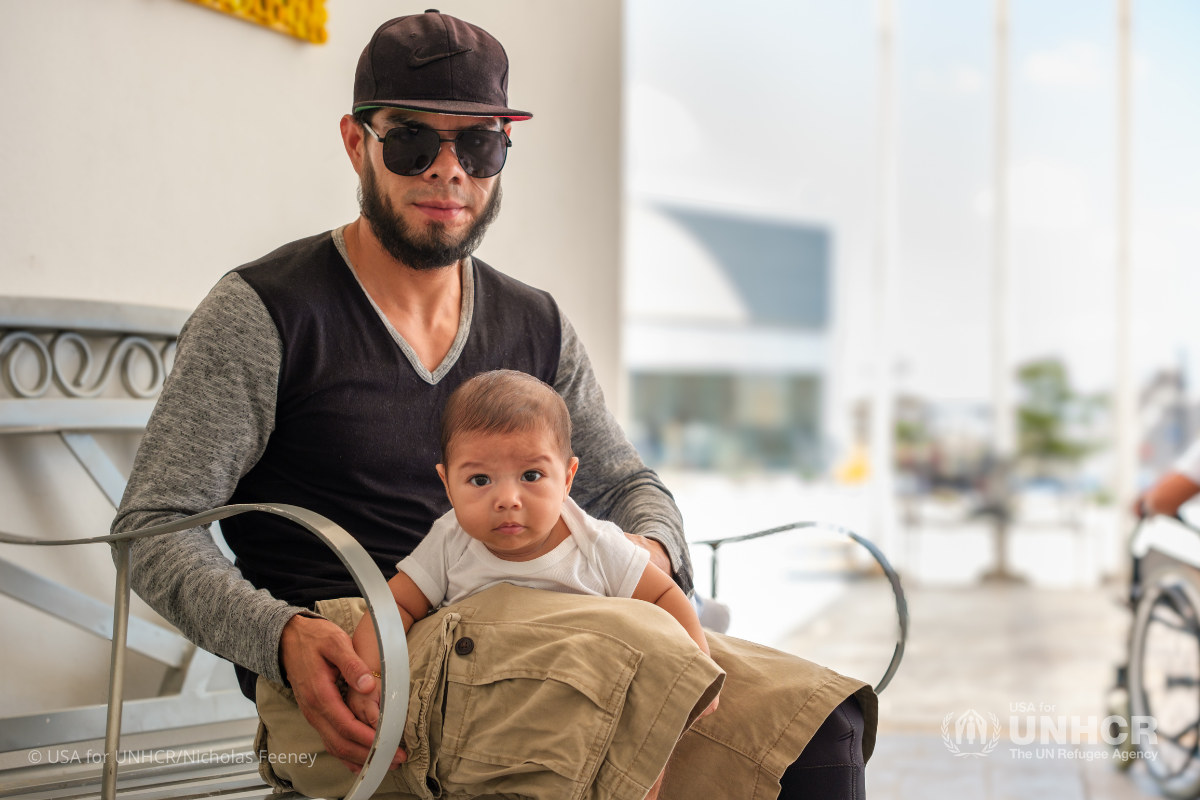
Javier is further along in his recovery than Maria. He now can walk without the aid of crutches and is beginning to think seriously about how he is going to support his family in the future.
“I’m building strength in my legs and working to improve my mobility,” he shares. “I want to get back to work.”
What to learn more?
Read more about how Mexico is providing refuge for people fleeing violence and persecution and how refugees like Javier are recovering and rebuilding for safer, brighter futures.
